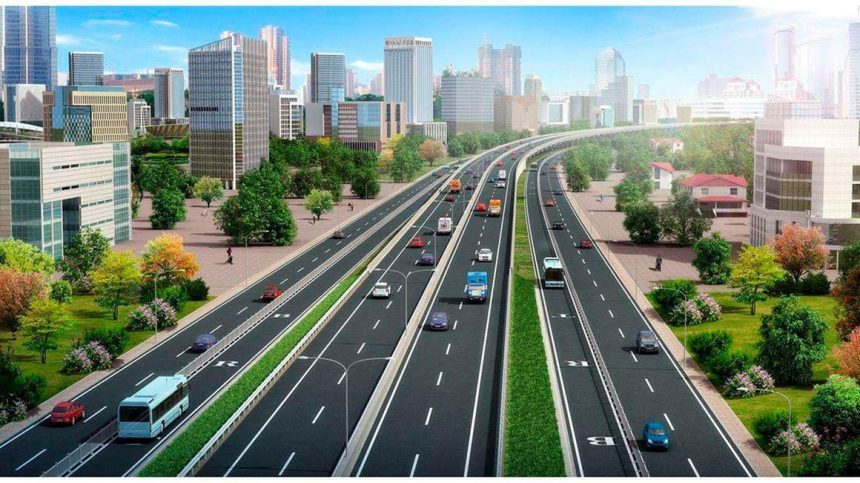President William Ruto’s administration has presented the Sh184 billion Mau Summit Highway to Chinese investors following a fallout with the French over price, in the latest twist to the controversy surrounding the funding of what promises to be Kenya’s biggest road project.
The President and other senior government officials on Saturday told a Chinese delegation that the dualling of the 233-kilometre highway was one of the pending infrastructure projects that were up for grabs.
The Chinese have in the past lobbied to be part of the action.
A French consortium initially won the tender. But Roads Transport Principal Secretary Joseph Mbugua last month revealed that the Kenya Kwanza administration had decided to put on hold the construction of the $1.3 billion Mau Summit highway.
Mr Mbugua said that the government found the total cost of the project to be too high given the current dynamics where Kenya is in a tight fiscal space.
He revealed that the government was negotiating with the contractors and financiers, a move that will delay the roll-out of the project that has attracted financiers such as the World Bank and the African Development Fund.
“We are still in negotiation. It became a bit hard for us to afford going by the current dynamics, so we requested them to review their presentation to be able to see whether we can make them affordable,” said Mr Mbugua.
On Saturday, the government moved to entice the Chinese to join the race for the construction of the 233-kilometre Nairobi-Nakuru-Mau Summit toll road.
Dr Ruto said the Kenyan government had initiated bilateral talks with its Chinese counterpart on the completion of various pending road projects, including the widening of the 175km four-lane dual carriageway.
“We are ready to expedite discussions and conclude on details on the proposed projects for implementation,” said the President during a high-level meeting with Wang Yi, the Member of the Political Bureau of the Communist Party of Office of China Central Committee and Director of the Office of Central Committee of Foreign Affairs.
Dr Ruto noted that these projects can be pursued either under public-private partnerships or government-to-government.
For his part, Mr Wang noted that China would focus on areas that would help Kenya to prosper.
“China will consider the Kenya government’s priority areas of interest,” he said.
Roads Cabinet Secretary Kipchumba Murkomen also held a meeting with a Chinese delegation led by Deng Li, the Vice Minister for Foreign Affairs.
“Our discussions were centred on pending projects in the road and transport sector as discussed yesterday (Saturday) with President Ruto,” said Mr Murkomen in a tweet.
Besides the dualling of the Mau Summit, the government plans to upgrade the Jomo Kenyatta International Airport (JKIA) and the ports of Mombasa and Lamu.
The French consortium made up of Vinci Highways SAS, Meridian Infrastructure Africa Fund, and Vinci Concessions SAS was tasked to expand the main artery from Nairobi to western Kenya into a four-lane dual carriageway through a public-private partnership (PPP) model.
The consortium, known as the Rift Valley Highway Limited, was expected to recoup its investments in 30 years by charging toll fees on the road.
However, the new administration is yet to approve the construction of the project which was slated to kick off in September 2021.
The project, which has the financial backing of the World Bank and the African Development Bank, was initiated by then president Uhuru Kenyatta.
Should the Chinese be awarded this tender, they will have built two of the country’s major toll roads, with the China Road and Bridge Corporation (CRBC) having already built the Nairobi Expressway, so far the largest PPP project.
China has cast its eyes on the new PPP model preferred by the Kenya Kwanza administration as the government runs out of fiscal space to chalk up more loans.
Although the contractors are yet to break ground on the 233-kilometre road, the government has allocated Sh816 million for the acquisition of land along the planned highway in the four fiscal years to 2025/26.
The consortium of three French firms earlier indicated they were ready to break ground having got the financial backing of the African Development Bank (AfDB) and the World Bank.
Both the contractors and financiers have indicated they were waiting for President Ruto’s word on when construction should start.
President Ruto met his French counterpart Emmanuel Macron in his two visits to France in January, and it is understood the construction of the road featured in the bilateral talks.
France has intensified its activities beyond the Francophone countries and has set its sights on Kenya as an entry point into the East African region.




